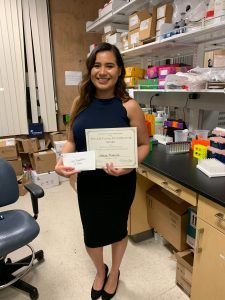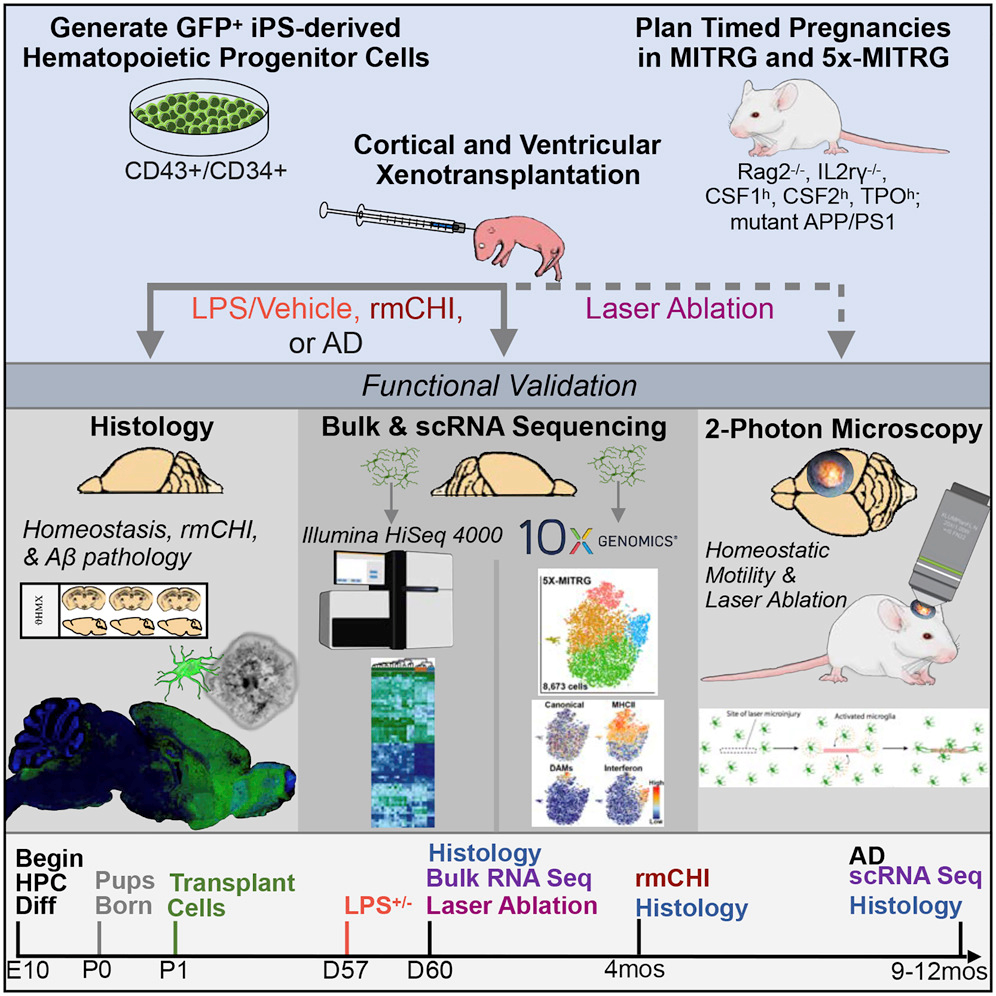 The AAI Young Investigator Award was presented to Jessica Sanchez at the 17th Immunology Fair Symposium. Congratulations Jessica!
The AAI Young Investigator Award was presented to Jessica Sanchez at the 17th Immunology Fair Symposium. Congratulations Jessica!
Congratulations to Amanda McQuade for being awarded a prestigious ARCS Scholarship
 ARCS (Achievement Rewards for College Scientists) Foundation, Inc. advances science and technology in the United States by providing financial awards to academically outstanding U.S. citizens studying to complete degrees in science, engineering and medical research. It is ARCS Foundation’s belief that support of STEM education is essential to U.S. economic growth and technological competitiveness, and helps to ensure continued U.S. leadership in global innovation, health and quality of life.
ARCS (Achievement Rewards for College Scientists) Foundation, Inc. advances science and technology in the United States by providing financial awards to academically outstanding U.S. citizens studying to complete degrees in science, engineering and medical research. It is ARCS Foundation’s belief that support of STEM education is essential to U.S. economic growth and technological competitiveness, and helps to ensure continued U.S. leadership in global innovation, health and quality of life.ARCS Scholar Awards are intended to recognize and reward UC Irvine’s most academically superior doctoral students exhibiting outstanding promise as scientists, researchers and leaders.
Novel Chimeric Rodent Model Yields Vital Information about Alzheimer’s
Novel Chimeric Rodent Model Yields Vital Information about Alzheimer’s
Scientists at the University of California, Irvine, report that they used a chimeric model to learn how key human brain immune cells respond to Alzheimer’s. By developing a way for these microglia to grow and function in mice, the team says researchers now have an unprecedented view of crucial mechanisms contributing to the disease.
The scientists, led by Mathew Blurton-Jones, PhD, associate professor of neurobiology & behavior, believe their findings also hold promise for investigating many other neurological conditions such as Parkinson’s, traumatic brain injury, and stroke. Their study (“Development of a Chimeric Model to Study and Manipulate Human Microglia in vivo”) appears in Neuron.

To read the full article, click Here.
Call it Mighty Mouse: Breakthrough leaps Alzheimer’s research hurdle
UCI-led study reveals crucial mechanisms contributing to the disease
University of California, Irvine researchers have made it possible to learn how key human brain cells respond to Alzheimer’s, vaulting a major obstacle in the quest to understand and one day vanquish it. By developing a way for human brain immune cells known as microglia to grow and function in mice, scientists now have an unprecedented view of crucial mechanisms contributing to the disease.
The team, led by Mathew Blurton-Jones, associate professor of neurobiology & behavior, said the breakthrough also holds promise for investigating many other neurological conditions such as Parkinson’s, traumatic brain injury, and stroke. The details of their study have just been published in the journal Neuron. Link to study: https://www.cell.com/neuron/fulltext/S0896-6273(19)30600-2.
To read the full article, click Here.
Hasselmann and Coburn et al. publish in Neuron
Development of a Chimeric Model to Study and Manipulate Human Microglia In Vivo
iPSC-derived microglia offer a powerful tool to study microglial homeostasis and disease-associated inflammatory responses. Yet, microglia are highly sensitive to their environment, exhibiting transcriptomic deficiencies when kept in isolation from the brain. Furthermore, species-specific genetic variations demonstrate that rodent microglia fail to fully recapitulate the human condition. To address this, we developed an approach to study human microglia within a surrogate brain environment. Transplantation of iPSC-derived hematopoietic-progenitors into the postnatal brain of humanized, immune-deficient mice results in context-dependent differentiation into microglia and other CNS macrophages, acquisition of an ex vivo human microglial gene signature, and responsiveness to both acute and chronic insults. Most notably, transplanted microglia exhibit robust transcriptional responses to Aβ-plaques that only partially overlap with that of murine microglia, revealing new, human-specific Aβ-responsive genes. We therefore have demonstrated that this chimeric model provides a powerful new system to examine the in vivo function of patient-derived and genetically modified microglia.
Jessica Sanchez awarded The Outstanding Predoctoral Scholar Award
 Research and Education in Memory Impairments and Neurological Disorders, or REMIND, is a campus organization led by UCI MIND predoctoral and postdoctoral trainees. REMIND aims to: Encourage collaboration among the next generation of scientists and clinicians, and Promote community outreach and education on neurodegenerative diseases.
Research and Education in Memory Impairments and Neurological Disorders, or REMIND, is a campus organization led by UCI MIND predoctoral and postdoctoral trainees. REMIND aims to: Encourage collaboration among the next generation of scientists and clinicians, and Promote community outreach and education on neurodegenerative diseases.
The Outstanding Predoctoral Scholar was presented to Jessica Sanchez at the 2019 ReMIND Symposium.